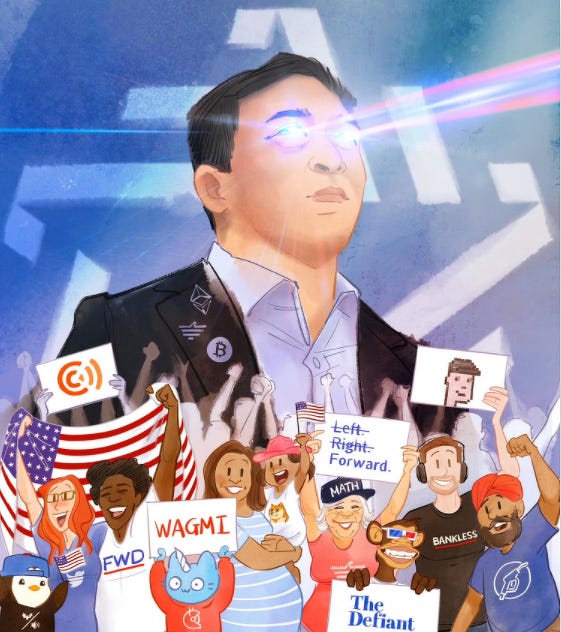DAO Tooling
Welcome
This week I wanted to cover some of the issues I see with DAO tooling at its current stage of development, and how we might start thinking about this issue in a different way. If you're unfamiliar with DAO’s please read my article about DAO’s here. There is a growing need in this industry for tooling that can help empower asynchronous work and coordination. Tools today are solving problems all DAOs face, but there is more work to be done.
Are All DAOs The Same?
Simple answer: No. People have talked about how DAOs are the new startups, and they may be the dominant business vehicle going forward. However, we are currently building tools that address general problems DAOs face. Companies today don't have the same mission or needs in terms of tooling. Like traditional companies, different DAOs need different stacks to support their needs. Going more niche on a specific product or service for a subcategory of DAOs seems like it will bear better results than the general tooling we have today.
DAO Specialization
As DAOs become more prevalent, some will begin to specialize. Having a DAO with a very general mission is very hard to maintain as there is much going on, and many members begin to do work that is not relevant to other work being done in the DAO. Also, the lack of focus makes it hard for members to be confident in the DAO's mission. Specialization is what humans do, and DAOs are composed of humans. We will see some DAOs hit an upper limit of size and then break off into smaller DAOs that are more suited for the values of each sub-community that was once in the larger DAO. This is where tooling will be able to make some headway.
Different Tooling For Different DAOs
DAO tooling is currently in its nascent form, laying out DAO primitives that most DAOs will incorporate in some way. There is no shortage of these tools as we can see below.
Many of these are still addressing the issues every DAO faces which is important and necessary. I will also say that tools such as DAOHaus or Aragon are paving the way for improving UX for spinning up a DAO easier. However, as we start to see more specialized DAOs, generic tooling won't cut it. For example, a service DAO will require more tooling for coordinating members around projects and remunerations for its members. Whereas a venture investment DAO will require more tooling around deal flow, relationship management, and treasury use. These differences can be leveraged by more DAO-specific tooling to empower each different type of DAO to play to its strengths and deal with its weaknesses in an easy way. I think this opens up opportunities for more people to come and build something that addresses pain points to specific types of DAOs.
Possible Avenues to Explore
I have been excited by DAOs that are owning land. DAOs such as CityDAO have recently broken into the real world, and now own land or host in-real-life events. There could be a need for tools that address the issues with DAOs that own land face; these could be property management tools, oracle integrations to ensure physical work for their physical assets are being done, and census tooling for DAOs that plan to allow people to live on their land. As much as I like the tools today, there will need to be something more than Notion and Snapshot to run a city.

I also see an opportunity for DAOs as political parties. Andrew Yang has recently announced his campaign with the Forward Party, and wants to make it the “crypto party”. There has been talk of making this political party a true DAO, giving us a glimpse at a possible future of political parties going forward. The tooling for DAOs such as these would need tools for vote tracking, campaign management in a much more specialized in order for nominees to gain valuable insight into the voting populous.
Closing Thoughts
DAOs are in their early days and have a long way to go. We still don’t know exactly what constitutes a DAO as different people have different definitions. This supports the idea that DAOs are not the same and will become more specialized over time. Along with building tools for existing problems DAOs face, we should also consider what future problems different types of DAOs will face as they specialize. The tools should fit the DAO instead of trying to make the DAO fit the tools.




